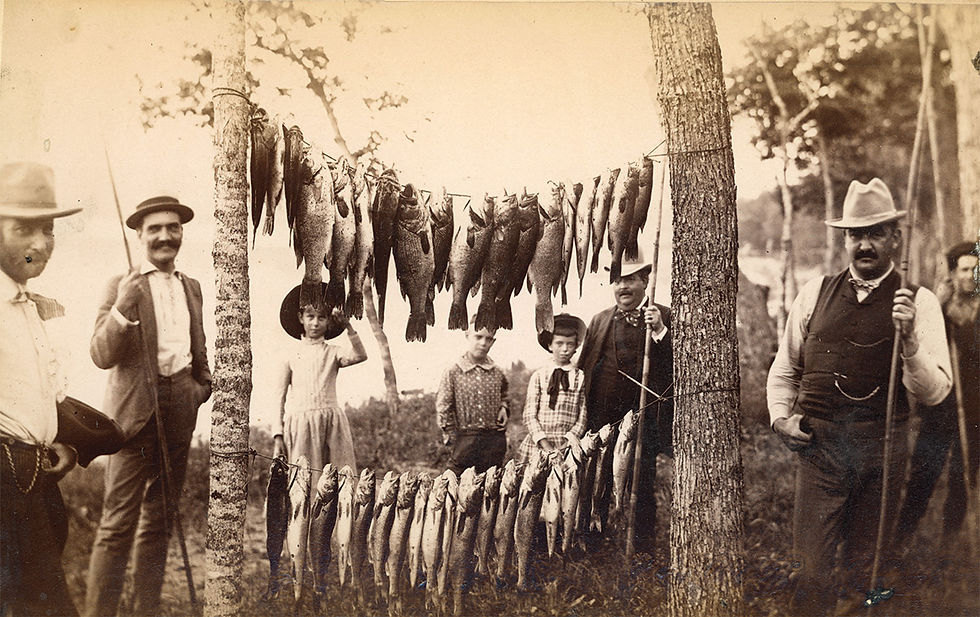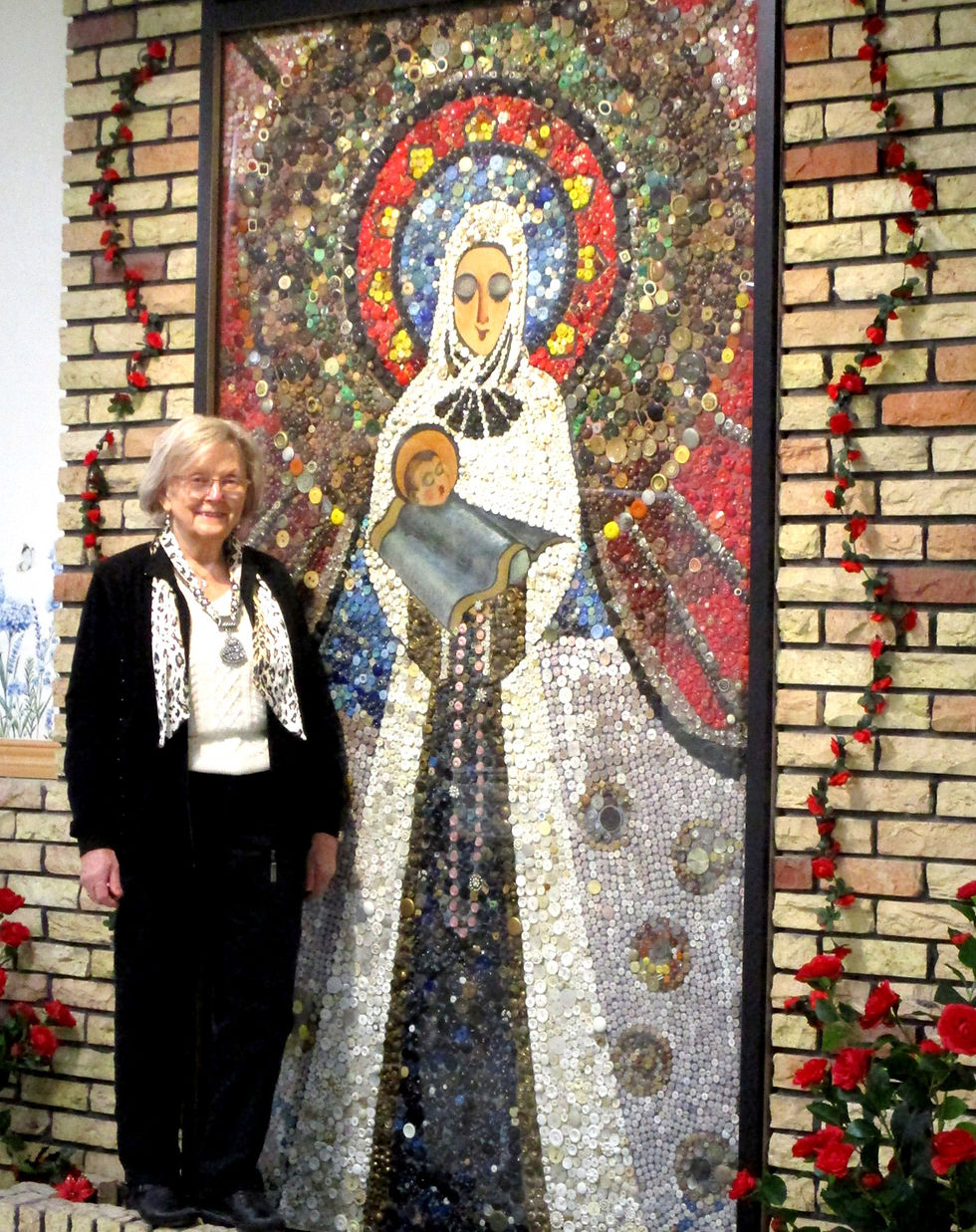Retiree Finds Enjoyment as a Jury Attendant
- Sr Perspective

- Apr 3, 2024
- 7 min read
By Bill Vossler

After Bob Lacroix of Becker worked as a Stearns County Jury Attendant for a while, he realized three things... 1) the job altered his personal life, 2) it helped him see that the jury system worked, 3) he really saw the goodness of people.
Bob decided to pursue a position as a jury attendant in retirement.
“I was retired and was kind of bored because I had worked for 30 years as a social worker in child protection, and several years counseling for drug addiction,” he said. “I missed not being around people whose lives were not going real well, or were in a bad spot. I enjoyed working with them, and missed some craziness and miracles this population gives us.”
Bob first saw the inside of court work as a social worker on child protection for Sherburne County.
“Tuesday in Elk River was juvenile court day,” he said. “So I put on a shirt and tie and went into the courtroom with a three- or six-months report of recommendations about certain kids for the courts, which was read by the judge, the kid’s attorney, the county attorney, and guardian ad litem. They would ask, ‘What are you recommending here?’ Through that I really had a different look at our court system, and it was a positive look. I enjoyed working with the judges who said ‘nay’ or ‘yay’ to my recommendations. I had interactions with private attorneys and county attorneys, and the court-provided attorney with the children, so I ended up having a lot of faith in how the system worked. Before that, I don’t think or I understood or believed that before participating in some of those hearings.”
Bob said juvenile court is a different animal.
“That‘s what drew me back to the courts,” he said. “To see it work in real time, with eight or nine judges, each of whom brings something different, working cases in the seventh district. They don’t decide who’s guilty or not, but make sure everybody is doing things legal. It’s made me much more jury-friendly or courtroom-friendly. Judges, clerks, bailiffs, recorders, all have their jobs and they take it seriously. It’s fun to watch and to get to know these folks a little bit better. It’s a positive experience for me.”
What does a jury attendant do? When he is asked that question, Bob often wants to say “I babysit adults who are on a jury.” But that’s not really accurate, he added.
“I try to make them comfortable, and give as much information as I can, while making sure the rest of the public does not interfere with them or bother them or ask questions. I try to protect them so nobody can say, “I saw so and so juror talking with…” and get the whole thing called off. I keep them doing what they are supposed to do. I make sure there’s no drinking. If somebody goes out for lunch, I tell them up front there’s no drinking allowed while on jury duty.”
“Three men and three women are chosen for each court session. What we basically do is greet people. Between 40-60 people are called in from the list the county has from driver’s licenses, identification cards or voting records. These folks go to the Stearns County Courthouse jury assembly room.”

Bob said most people fall into one of three categories...
“Those scared out of their wits, thinking, ‘What have I gotten myself into now;’ those who are angry, thinking, ‘My own job and my life are more important than this, where I’m going to be harangued on jury stuff and I don’t make enough money;’ and those who don’t have to serve on a jury, retired and after 70, and are thinking, ‘This will be fun. I’ll get out of the house and do something worthwhile. Maybe I’ll meet some new people and make some friends.’ So for jurors you get all sorts and kinds.”
Seeing the goodness in people has been one of the best of the job. And an important part of seeing that is making a good first impression.
“I have a list of what needs to be done,” he said. “I welcome the people, answer questions, and we show them a 15-minute video. Afterwards, I explain the two types of trials--criminal, which are most, and civil, many fewer--all of which use real judges. I try to make them as comfortable as possible. It usually takes two or three hours before we get them all signed in, offer orientation and tell people the expectations. No harsh dress code, but no controversial t-shirts or shorts, and hats are okay to and from the courtroom, but not inside the court room.”
Four different courtrooms are used for trials in Stearns County, Bob said, “Two in the facilities building and the other two on the second floor of the courthouse.”
The first day has a lot of people running around, Bob said. “It gets almost overwhelming, because the days get pretty long.”
Once they are all in the courtroom, jury selection begins.
“Prospective jurors are asked a bunch of questions by the judge, and defense and prosecuting attorneys, until the number of jurors is pared down to 12 for a felony case, and six if it’s a misdemeanor,” he said.
Then the jurors begin to realize the situation. “Now they have to sit in the same jury box chairs every day so the judge and attorneys know who is sitting where. At this point, some of those folks don’t really want to be there. They are thinking, ‘Oh crap, we’re going to decide something major in a person’s life.’ The jurors take that very seriously. In the 300 or more juries I’ve worked with, I haven’t seen a jury that didn’t take it seriously. That makes the biggest impact on me. Even though I have no say--I can’t tell any jury one iota of what I think about this case--we all listen and have our opinions. Jurors put a lot of effort into deciding each case, and I’ve been pleasantly surprised by that.”

One time Bob and his partner noticed a woman about 70 years old acting differently.
“She seemed to be fine and was selected for the jury, but during a break in the deliberation room just off the main court, her conversation wasn’t connecting with anybody else’s. I said to the woman I was working with, ‘There’s something haywire with her.’ She didn’t smell of alcohol, but because of how she was acting, we sent a note to the judge, saying we didn’t think she was working with full capacity. On the witness stand outside of the jurors, our statements were taken under oath. The attorneys agreed they needed to get this woman off the jury. Which they did. That was a hard thing to see. But I’m glad we brought it to the judge’s attention. I was thinking, what if I’m being charged with something, and suddenly I find somebody on the jury that maybe doesn’t think very clearly or is unable to make a good decision on guilty or not guilty?”
Bob enjoys watching what happens in trials.
“During deliberation the jury decides guilty or not guilty. Listening to them after the trial is a real education,” he said. “I have a newfound respect for people put into that jury situation, because they usually give a really good effort. After making their decision, almost every jury, even after only a few hours deliberation, will look like they just finished a marathon. I think that proves that using your brain a lot gets you just as tired as chopping wood. Afterwards jurors invariably say, ‘That was really difficult, but I’m glad I was chosen. It was a good experience, but I’m exhausted.’ That all confirms my faith in humanity.’
Bob enjoyed seeing that after the verdict is read and the jury is dismissed, most Stearns County judges will take time saying they will come talk to the jury for five or ten minutes. “The judges thank them for their service, and answer questions. The judges also asked jurors to talk about their experience, and how the process might be improved. The judges are very user friendly.”
Jury trials last from no time, Bob said, (“Three and out,” in jury attendant language,) to perhaps three weeks.
“Three and out means the defendant wanted a jury trial, and on the day of the trial they think ‘I’m going to be judged by all these people. I’d rather take my chances with only the judge.’ There are many three and outs, and we do get paid for three hours if it gets called off. Or if somebody doesn’t show up, or there’s a plea bargain or whatever, we get paid for three hours.”
Other trials last one, two or three days, Bob said. “That’s about average. Anything longer than three days is a bit unusual. A few murder trials in Stearns County have lasted two or three weeks. I’ve never been a jury attendant at a murder trial.”
Once a trial ends, the jury deliberates on guilty or not guilty. “As jury attendants, we cannot speak to jurors during deliberation. If a jury member has a question, they write it on paper and we take it to the judge’s clerk. So we have very little connection with the jurors. They cannot come and go when in deliberations. We usually get a decision within a day. Eight or nine hours was my record. The shortest jury deliberation lasted eight minutes.”

One time Bob got called late at night during the fourth week of a murder case. “At nine at night they said, ‘Put on a shirt and tie and get here in a half hour because with no decision they’re going to get sequestered for the night, and you‘ll have to be there to watch them.’”
Bob rushed to the courthouse. “The judge was going to explain how to escort the jury in vans to a hotel, and another jury attendant and I would have to stay awake in the hallway all night. In the morning, escort them back to the courthouse. I’m thinking, ‘This is different.’ Just then a jury member came out and said to the judge, ‘If you give us 15 more minutes, we can come up with a verdict.’ Ten minutes later they did. That was as close as I ever got to be sequestered, and was close enough. What I wondered afterwards was why they wanted me to wear a shirt and tie. Who’s going to see me in middle of the night?” he laughed.
Bob has been a jury attendant for 12 years. “It’s a very part-time job, and most of us attendants are retirees who are on two weeks at a time. Three of the six will be on call, and two of the other three are chosen for a trial. I really like getting called in on a trial.”




Comments